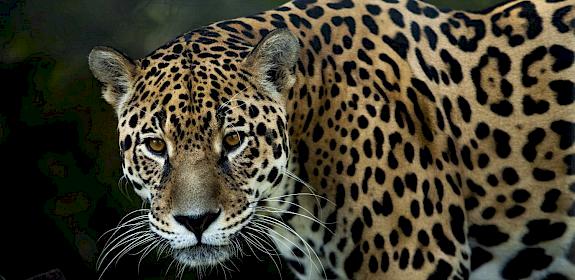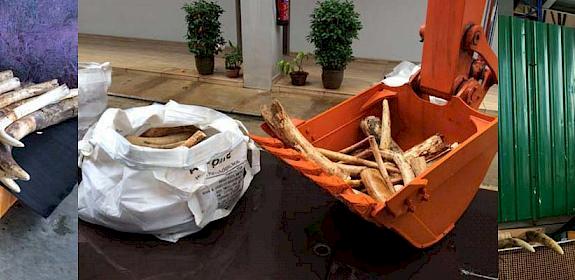China moves to give full protection to native pangolins
Beijing, China, 5th June 2020—China has upgraded the national protection status of its native pangolin species, in particular the Chinese Pangolin Manis pentadactyla, to Class I, the highest form of protection under national legislation.
The announcement was made today by the National Forestry and Grasslands Administration (NFGA).
Since pangolins are all listed in Appendix I of the Convention on International Trade in Endangered Species of Wild Fauna and Flora (CITES) under which all international commercial trade in them is banned, the move also means that all pangolins are effectively considered Class I protected animals in the country too.
The Chinese Pangolin is considered Critically Endangered by IUCN, primarily threatened by indiscriminate hunting and poaching, mainly driven by demand for its meat and scales, the latter used in traditional medicine in China.
Alongside the new Class I Protected Species classification, according to a media report, the NFGA has also committed to enhanced monitoring of pangolin populations, with additional field patrols to prevent poaching and improve and restore pangolin habitats. There will be greater efforts to raise awareness of the protected status of pangolins with tougher enforcement action taken against illegal trading, smuggling, and eating of pangolins and their products. Further research into artificial breeding, genetics and wild release of pangolins will also be carried out at a dedicated research centre.
TRAFFIC welcomes the enhanced pangolin protection status alongside the proposed actions to restore wild pangolin populations and improve law enforcement measures. Other appropriate actions would include enhanced trans-boundary law enforcement collaboration, and development of a timeline to phase out the use of pangolin parts in traditional medicine practices.
Use of pangolin scales medicinally is currently permitted in China from officially approved government stockpiles, although following studies into pangolin availability and utilisation in the country TRAFFIC previously recommended a thorough inventory check should be carried out.
In 2018, TRAFFIC alongside WWF and the Zoological Society of London (ZSL), launched a Champions of Change initiative, which prioritised pangolin conservation in efforts to contribute towards China’s Ecological Civilisation.
Pangolins have had some very mixed press of late, so it is a welcome relief to hear of the strengthened protection and commitments made today towards protecting the Chinese and other beleaguered pangolin species,
Xu Ling, Director of TRAFFIC’s China office
Pangolins have been in the limelight in recent weeks as a possible intermediate animal species in the transmission of SARS-CoV-2 from bats to humans after coronaviruses with similar characteristics were detected in Sunda Pangolins M. javanica. However their role in the transmission is still a subject of intense scientific debate.




